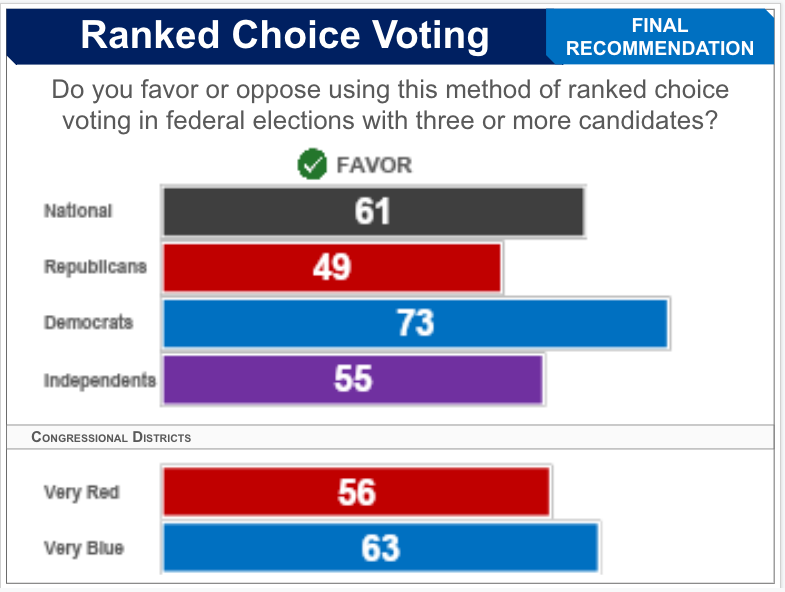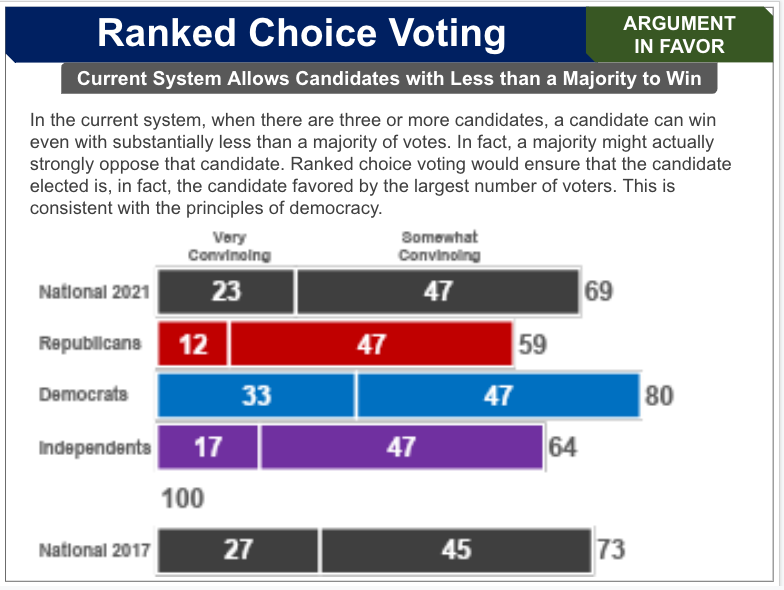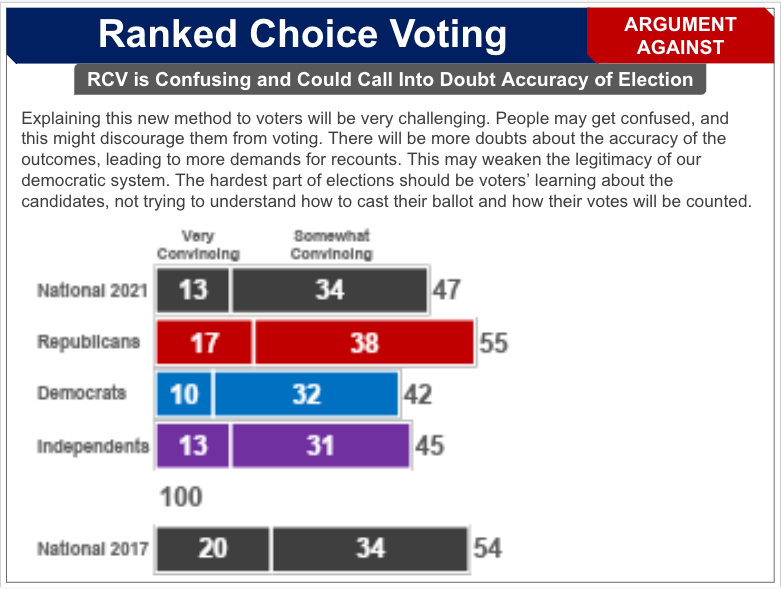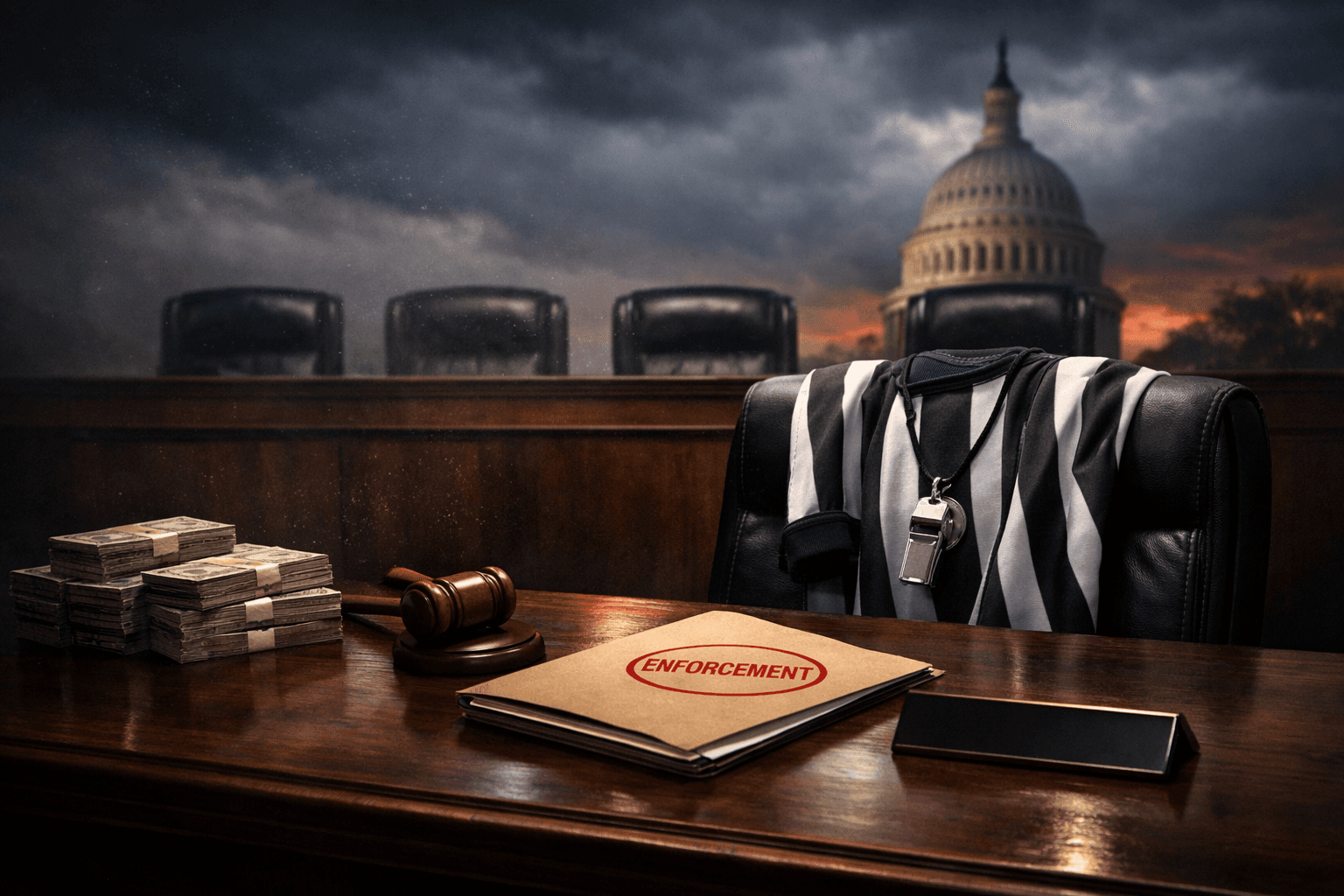New Survey Shows Overwhelming Favorability for Ranked Choice Voting in Federal Elections
A new survey from the University of Maryland’s Program for Public Consultation (PPC) shows that most Americans favor using ranked choice voting in federal elections with three or more candidates. According to the results, 61% said they favor the alternative voting method’s use, including 73% of Democrats and 55% of independents. Republicans surveyed were divided, with 49% in favor and 50% opposed.
The survey of nearly 1,300 registered voters was conducted between July 13 and September 15, 2021.

“American voters are frustrated with the partisan polarization in American democracy but are often afraid of voting for independent or third party candidates because they do not want to effectively throw away their vote,” said PPC Director, Dr. Steven Kull. “Ranked choice voting is appealing as a way to solve this conundrum.”
Ranked choice voting allows voters to rank candidates in order of preference (1st choice, 2nd choice, 3rd choice, etc) in elections with more than two choices, rather than choosing only one. In the RCV method offered, if no candidate has over 50% of first choice selections, a runoff round is initiated in which the last place candidate is eliminated and their voters’ next choice is applied to the results.
The process continues with subsequent rounds of runoff as needed until a candidate has over 50% of the vote. This RCV method is called instant runoff voting.
Survey takers were presented with common arguments for and against ranked choice voting. For instance, one argument in favor of RCV is that choose-one, plurality voting can result in candidates winning with nowhere near majority support, while RCV ensures that the most preferred candidate among the most voters wins.

Nearly 70% of respondents found the “majority rule” argument for RCV either somewhat or very convincing. This included 59% of Republicans, 80% of Democrats, and 64% of independents. The results were similar for every argument presented in favor of RCV..
One argument presented to survey takers against RCV is that the method is too complex, and may discourage people who are confused with how it works from voting. The argument further states that the system could raise doubts about the accuracy of election outcomes, leading to more demands for recounts and would weaken the legitimacy of elections.

A majority of respondents did not find the arguments against RCV convincing to any degree. It was only among Republicans that a majority said the arguments were at least somewhat convincing, which can help explain why Republican voters surveyed were divided when asked if they favored the voting method or at the very least found it acceptable to use.
The survey also pointed to interest in a third option in RCV elections other than Republican and Democratic candidates. 53% of respondents said they would view a third party that was committed to consulting the people when developing their platform favorably under an RCV system.
Further, if an independent candidate pledged to “work with a university-based survey research center that will consult the people in my district in a scientific way,” 64% of respondents said they would rank the candidate first on an RCV ballot, highlighting the competitive potential offered by the alternative voting method.
It is worth noting that after the hypothetical new party and independent candidate were offered, RCV favorability increased slightly among Republican and Democratic respondents. A clear divide still existed among Republicans. However, a majority of Republican women (54%) were in favor of the voting method, and support increased with educational level.
Interest in RCV has skyrocketed. The number of jurisdictions using ranked choice voting more than doubled in 2021, and more cities and states are considering its adoption either through ordinance, legislation, or ballot initiative. Two states, Alaska and Maine, have adopted its use for US House and Senate elections.
Legislation has also been introduced in Congress to completely reform the way members of Congress are elected. The Fair Representation Act (FRA) would require larger multi-member congressional districts where voters would use a proportional form of RCV to vote for representatives.
Advocates say the FRA would solve our political competition, representation, and gerrymandering problems in one bill. Learn more about it here.
 Shawn Griffiths
Shawn Griffiths





